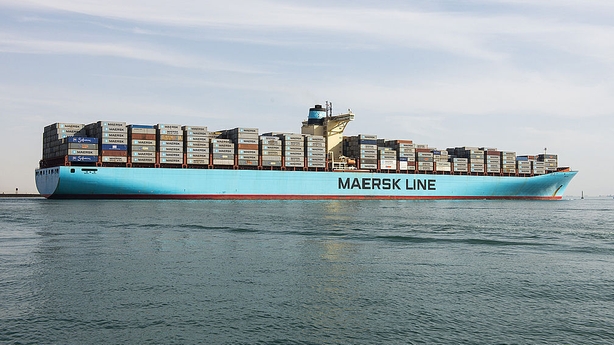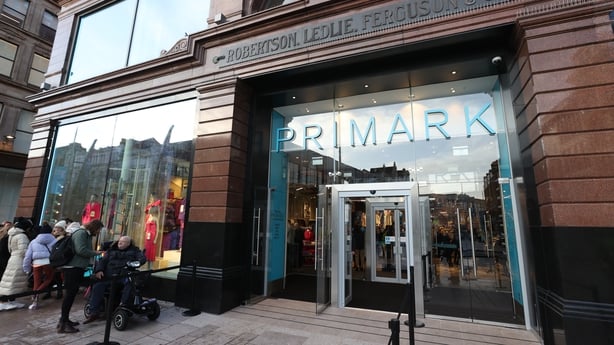Associated British Foods said underlying sales growth slowed at its Primark-Penneys clothing business in the Christmas quarter, hurt by unseasonal warm weather at the start of the period.
The group also said today it was monitoring the situation in the Red Sea but does not expect any significant disruption to its supply chain for now.
Primark's like-for-like sales rose 2.1% in the 16 weeks to January 6, its fiscal first quarter, a slowdown from growth of 8% in the previous quarter. Primark's total sales were up 7.9%.
Primark trades as Penneys here.
"It was a tricky period," Finance Director Eoin Tonge told Reuters. "It started off very slowly with the weather and that impacted certain countries harder than others, particularly Spain where it was warmer for longer."
However, trading at Christmas was strong, especially in the UK, Tonge said, adding that the group had flagged a slowdown in underlying sales growth.
AB Foods said it was more confident Primark's adjusted operating profit margin would recover to over 10% in its 2023/24 year, driven by a further improvement in the cost of the products it buys.
"This should insulate us well against potential additional costs of supply due to the disruption in the Red Sea should they arise," it said.
Finance Director Eoin Tonge told Reuters that the Primark clothing business is currently coping with disruption to Red Sea shipments and is hopeful customers will not notice any difference to the stock in stores.
Attacks by the Iran-aligned Houthi militia on ships in and around the Red Sea since November have slowed trade between Asia and Europe and alarmed major powers in an escalation of the war between Israel and Palestinian Hamas militants in Gaza.
The alternative shipping route around South Africa's Cape of Good Hope can add 10-14 days to a journey compared to passage via the Red Sea and Suez Canal.

"We have a bit of experience of adjusting on our supply chain, so you adjust - you adjust your timings, you adjust your stock flow through the depots and so on," AB Foods finance director Eoin Tonge told Reuters in an interview after the group updated on trading.
"We're hopeful they'll (customers) never notice it in stores," he said. "Some of our store managers might notice, little bits and bobs might be impacted but we don't think the customer should be impacted that much."
Tonge said Primark was monitoring the situation in the Red Sea closely and was speaking to its shipping partner Maersk at a senior level on a regular basis.
"We expect to see increased surcharges from Maersk but we’re not incurring them at the moment," he said.
"With the way our contracting works and just in general how we see the market, we don’t think it will be that material," he added.
Tonge said if the Red Sea disruption continued beyond Easter, Primark would have to place earlier orders with suppliers.
"That means we will just be carrying a higher amount of stock, there’ll be more stock on the water," he said, adding using air freight would not be economical or sustainable.

Tonge also said he did not anticipate any significant pricing moves from Primark in its 2023/24 year.
Rival Next and discounter Pepco Group have warned that a prolonged issue in the Red Sea region could impact supply in the coming months. Marks & Spencer has said the disruption will cause some slight delay in deliveries.
Meanwhile, AB Foods, which also owns major sugar, grocery, agriculture and ingredients businesses, kept its forecast for a year of "meaningful progress" in both profitability and cash generation.
Shares in the group were up 1.3% this morning, extending gains over the last year to 24%.
It said the profitability improvement was being driven by the recovery in Primark's margin, a marked improvement in British Sugar profitability and by reduced losses at Vivergo.
It also felt more confident in the continued strong performance of both its US-focused grocery brands and of AB Mauri in ingredients.
In its first quarter, the company said that sales in the grocery business, which includes Twinings tea, Jordans cereals, Kingsmill bread and Ovaltine drinks, rose 5.4%.

